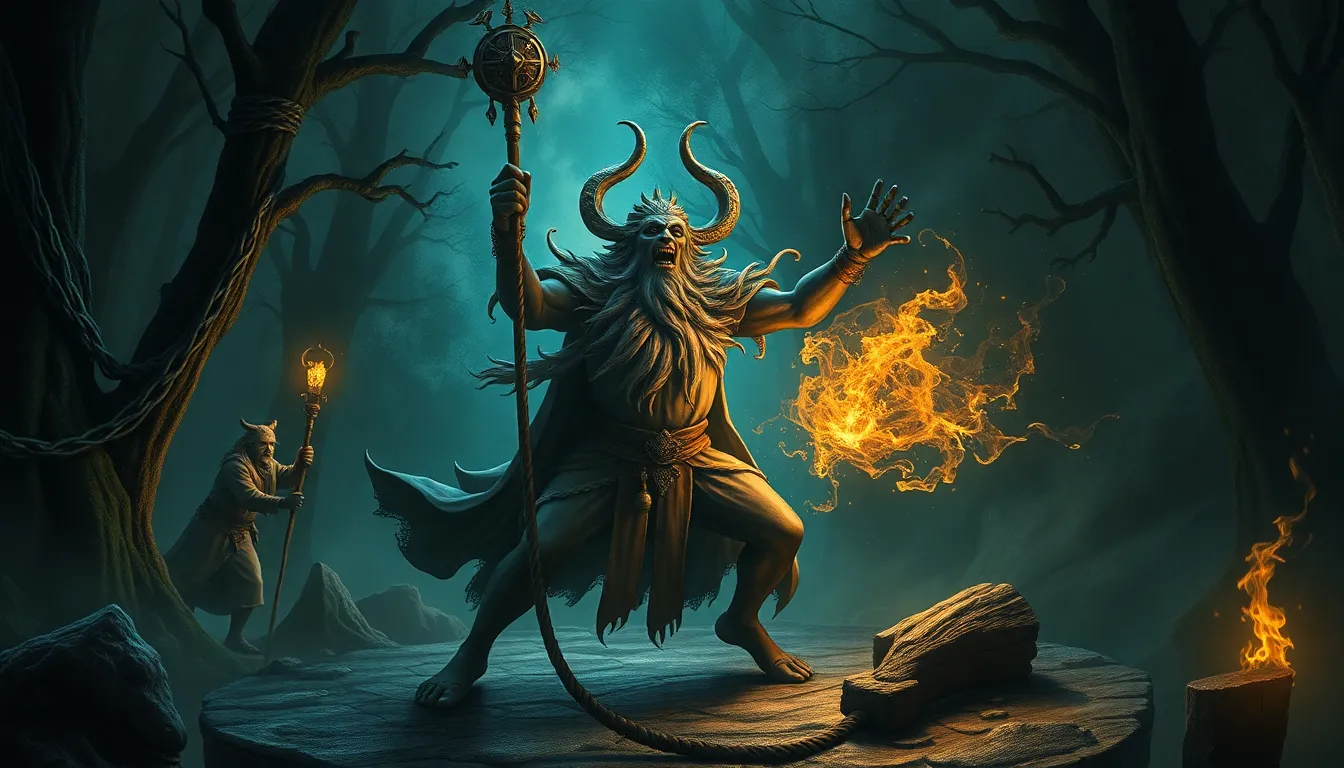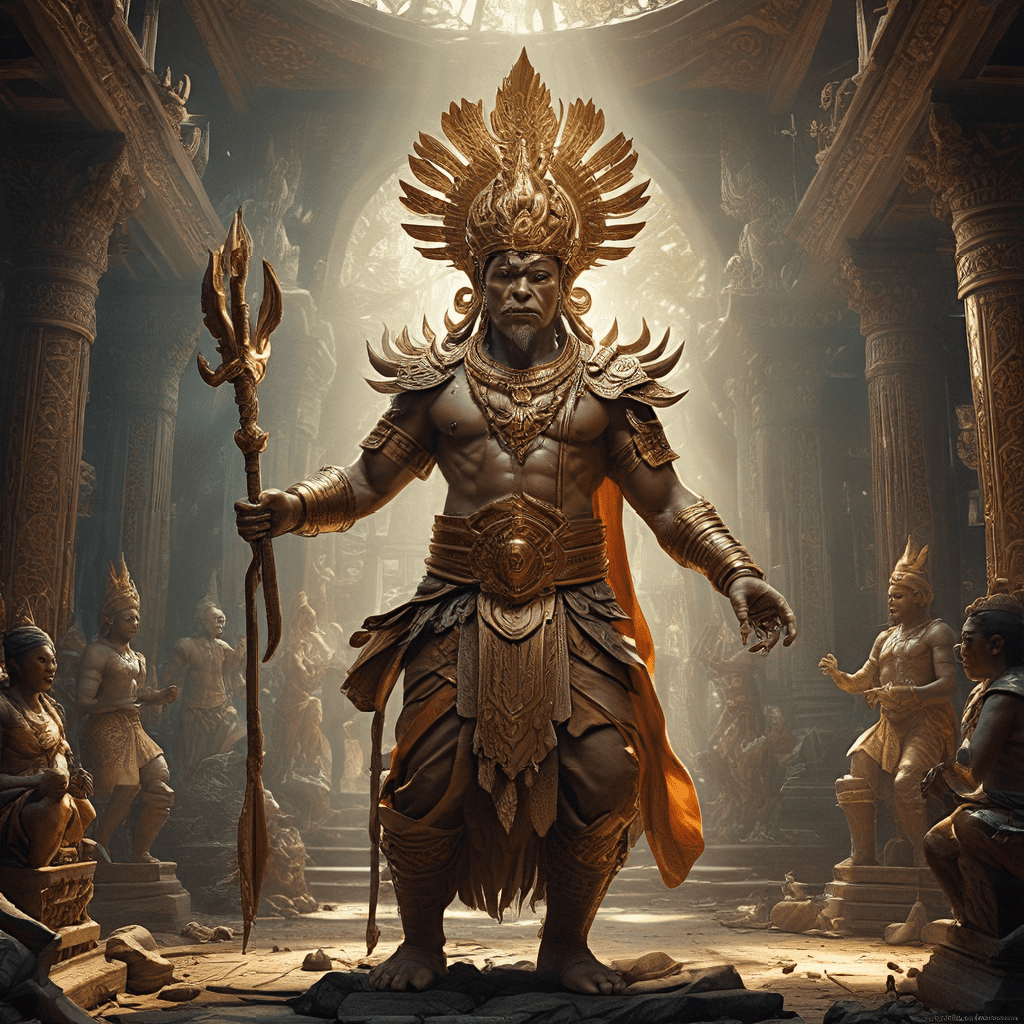When Love Defies Time: Eternal Lovers in Mythology
Introduction: The Timeless Nature of Love
Throughout history, love has been a central theme in human experience, transcending the boundaries of time and space. In mythology, eternal love serves as a powerful concept, illustrating the deep connections between lovers that endure beyond mortal limits. This article delves into the legendary tales of eternal lovers across various cultures, exploring how their stories reflect the universal nature of love and its ability to withstand the test of time.
The Concept of Time in Mythology
Mythologies from different cultures perceive time in unique ways, often blurring the lines between past, present, and future. In many narratives, time is not linear but cyclical, allowing for the possibility of eternal love. This perception of time plays a vital role in love stories, shaping the characters’ journeys and relationships.
Consider how:
- Time can be seen as a barrier that love seeks to overcome.
- Mythological tales often portray time as a force that can be manipulated or transcended through love.
- The intertwining of love and time highlights the enduring nature of emotional bonds.
Notable Eternal Lovers Across Cultures
Many cultures have celebrated pairs of eternal lovers, each embodying the ideals of love, sacrifice, and devotion. Some notable examples include:
- Orpheus and Eurydice from Greek mythology
- Psyche and Eros from Roman mythology
- Shiva and Parvati from Hindu tradition
- Tristan and Isolde from Arthurian legend
- Isis and Osiris from Egyptian mythology
These stories not only entertain but also offer profound insights into the nature of love and the human experience.
Orpheus and Eurydice: Love Beyond Death
The tale of Orpheus and Eurydice is one of loss and longing. Orpheus, a gifted musician, falls deeply in love with Eurydice. Their happiness is shattered when Eurydice dies shortly after their wedding, succumbing to a serpent bite. Grieving for his beloved, Orpheus descends into the Underworld, determined to bring her back to the land of the living.
Orpheus’s journey is fraught with challenges, but his enchanting music softens the hearts of Hades and Persephone, who agree to let Eurydice return. However, there is a condition: Orpheus must not look back at her until they reach the surface. Overcome by doubt, he ultimately looks back, losing Eurydice forever. This story encapsulates themes of:
- The power of love to inspire bravery and resilience.
- The tragic consequences of mistrust and the fragility of happiness.
- The idea that love transcends even death, yet is bound by human limitations.
Psyche and Eros: The Trials of Love
The story of Psyche and Eros explores the transformative power of love and the importance of trust. Psyche, a mortal woman of extraordinary beauty, captures the attention of Eros, the god of love. However, their love faces numerous trials set by Eros’s mother, Aphrodite, who is jealous of Psyche’s beauty.
Psyche endures a series of impossible tasks, each designed to test her resolve and commitment to Eros. Ultimately, her perseverance and courage lead to her reunion with Eros, who reveals his true identity. This tale highlights:
- The trials and tribulations that love can bring.
- The necessity of trust in a relationship.
- The idea that love can lead to personal growth and transformation.
Shiva and Parvati: The Cycle of Rebirth
In Hindu mythology, the relationship between Shiva and Parvati symbolizes the interconnectedness of love and spiritual growth. Parvati, the reincarnation of Sati, is determined to win Shiva’s heart, overcoming his initial indifference and ascetic lifestyle. Their love story is rich with themes of devotion, sacrifice, and the cycles of life and death.
Shiva and Parvati’s union represents the balance of masculine and feminine energies, illustrating the idea that love is essential for spiritual awakening and completeness. Their relationship emphasizes:
- The concept of love as a force of creation and regeneration.
- The enduring nature of love through cycles of rebirth.
- The transformative power of love in achieving higher consciousness.
Tristan and Isolde: The Tragic Love Story
The tale of Tristan and Isolde is a classic story of doomed love that has influenced romantic literature for centuries. Tristan, a knight, falls in love with Isolde, the betrothed of his uncle, King Mark. Their love affair is passionate yet fraught with danger, leading to betrayal and tragedy.
This narrative explores complex themes such as:
- The conflict between duty and desire.
- The inevitability of fate and its impact on relationships.
- The notion of loyalty and the sacrifices made for love.
Isis and Osiris: Resurrection and Eternal Bond
In Egyptian mythology, the love story of Isis and Osiris is one of the most poignant tales of eternal love. Osiris, the god of the underworld, is murdered by his brother Set, but his devoted wife, Isis, embarks on a quest to resurrect him. Through her determination and magical powers, Isis brings Osiris back to life, symbolizing the eternal bond between them.
This story carries significant implications for life after death, showcasing:
- The idea that love can conquer death.
- The symbolism of resurrection and the cyclical nature of life.
- The power of loyalty and devotion in overcoming adversity.
Modern Interpretations of Mythological Love Stories
The timeless tales of eternal lovers continue to resonate in contemporary culture. These ancient stories influence modern literature, film, and art, shaping our understanding of love and relationships. Examples of modern adaptations include:
- Film adaptations like “Orpheus” and “Psyche” that reimagine these myths for new audiences.
- Literary works that draw on the themes of tragic love, such as “Romeo and Juliet.”
- Artistic representations that explore the symbolism of love and loss found in these stories.
These adaptations not only keep the myths alive but also provide fresh perspectives on love’s complexities.
Conclusion: The Enduring Legacy of Eternal Love in Mythology
The stories of eternal lovers in mythology reflect the timeless relevance of love in human experience. They illustrate that love can transcend the bounds of time and mortality, offering profound insights into the nature of relationships. As we explore these narratives, we are reminded of love’s ability to inspire, transform, and endure through the ages. Ultimately, the legacy of these eternal lovers continues to shape our understanding of love, reminding us that true connections can withstand the test of time.



